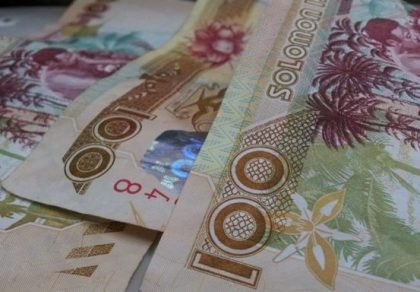COMMENTARY: Abundant aid can undermine governance
Commentary By Ruth Liloqula, Chair of Transparency Solomon Islands
Without an effective national plan and leadership, abundant external aid undermines domestic governance
Transparency Solomon Islands commends development partners and donors who are trying to ensure their funding assistance have an impact on the lives of people of Solomon Islands. We congratulate you and urge that you continue to consult widely. We also note that whilst this is the case, there are others who continue as usual, identifying the issues, consulting with stakeholders but at the end of the day, the solutions that stakeholders believe will work end up with no funding. They avoid addressing the real issues, but they have achieved the goal, they have consulted with the stakeholders. We also know that there are countries that have harnessed aid to deliver on their national plans providing insight, vision, and leadership.
Here in Solomon Islands we are currently receiving, or preparing to receive, increased external aid for our social and economic well-being and development. Old and new donors — bilateral, regional and multilateral — are lining up to assist us, with a range of motives that they only partly disclose. Some of them know us well, some are newcomers with only a vague idea of our situation and needs. Of course they are all welcome —“Please do help us, all you donors, even if we are not quite sure why you have come, or what your strengths and weaknesses are.…”
But wait, we say in Transparency Solomon Islands — while this is going on, what is happening to our own, domestically financed development efforts? A striking effect of the abundance of external aid to Solomon Islands is that it weakens what should be the home-grown developmental role of domestic expenditure by national and provincial governments. With donors eager to fund suitably labelled ‘development purposes’, national and provincial politicians can happily dig deep into domestic financial allocations to comfort and enrich themselves and their political or family supporters. They can answer anyone who questions this by pointing to the abundant external resources flowing into health, education, infrastructure and commercial investments — see, no problem, there’s plenty for everyone.
But of course everyone doesn’t get it. Without a comprehensive and active overall national plan, leadership, what happens is that the rich people (who know how to work the system) get richer, and the poor (who know nothing) get the left-over cold rice from the rich people’s table. We need a comprehensive review of the sources and uses of external assistance and domestic development financing, to support and form part of a complete, well-balanced and transparent plan for the use of domestic and foreign funding in Solomon Islands’ national development. While donors spend on targeted projects, government, instead of programming the use of public funds in a coherent approach, is trying to micromanage development by engaging MPs in delivery of funds in the name of seeding development in their constituencies [ so far, no real impact at all]. They leave the rest to the economics of agglomeration and seem to hold the view that development should basically go with the flow, so more funds are spent on the capital.
But wait, from our clients’ experiences with their leaders and the public sector we note that there is an air of arrogance in the corridors of power in Honiara. Leaders, who got elected by the people and public officers who are paid with public funds from taxes, their resources, seem to have forgotten what it is like to live in a remote village on a remote island. The rural population or 87% of the Solomon Islands population might as well be as far away as the moon. While national leaders often talk about national development plans and policies, few policies, development or strategic plans have been debated and approved by Parliament who pass the appropriation bill to implement government programmes each year.
But again, wait, what can we do with the weak governance? We need to reclaim our government from the loggers, and the fly-in, fly-out, consultants who do not have to live with the consequences of their advice. If we want to spread the benefit of government across all regions and islands, we must take a step back and think again. We should probably recoil from what is taking place and do something creative, innovative and radical and brave.
But how are we the people linked to the situation we find ourselves and our country in today? Can we make a difference to this situation to create a better environment for growth and development of our resources, our children and our environment, complementarity between aid received and our domestic finances to make a better change for ourselves? Transparency Solomon Islands say yes, we can make a difference and have the power to do so. We can do so by electing into Parliament politicians with the insight, courage and skills to govern wisely and effectively. But wait, what is the real issue with electing politicians with the insight, courage and skills to govern wisely and effectively? We say the monetization of the elections using CDF and other funding sources, an area that is being avoided to date. The choice is yours and mine. The power they have comes from us so start the discussion now.

